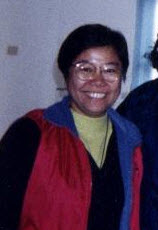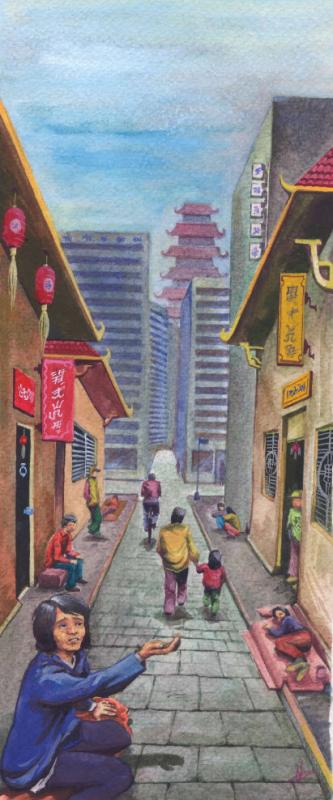From The Streets They Cry Out To Us
By Sr. Marvie Misolas MM

Sr. Marvie
The number of homeless people all over the world is growing and Taiwan is no exception. Shelters are being set up for these people as a temporary solution. Maryknoll Sister Marvie Misolas, a native of Marikina, shares with us about a friendship she had with Ka-Li, one of the residents she met when she visited Taichung City Homeless Shelter established by the Taiwan government.
I still remember the first time I met Hwang Ka-Li at the Shelter. She was smoking while her eyes were fixed on the television. Her long black hair flowed over her shoulders. She was beautiful despite the signs of hardship evident in her face. When she saw me she looked at me intently and pointed at the cross I was wearing and smiled. I smiled back and told her who I was. Then she opened her mouth and uttered some sounds. She began to motion with her hands with muffled sounds in between. I panicked a little when I realized she was speech-handicapped.

Sign Language
She was trying to communicate with me and I was so naïve, even a little nervous, not knowing how to respond. After I realized that though she was not able to speak, she could hear, I felt more comfortable in her presence and began talking to her in Taiwanese. She was telling me all about her story using her hands. She was extremely expressive and was capable of communicating without words. For about two hours I was with her, asking her questions and she would try to give me some clear and simple hand signs.
Homeless
Later on, one social worker joined me. He told me he tried to get some information from her when she had newly arrived at the Shelter two days before, but was not successful. I gave Ka-Li a pen and a piece of paper and asked her to write her name and address. She stared at me with an “I can’t believe you’re doing this” look, motioning to me that she does not know how to read and write. But then she reached out for the paper and began writing three characters. She was having difficulty writing the second one. But I was in awe when she finally finished writing her name. The next question I asked was how old she was. She quickly scribbled the day, month and year of her birthdate. However when asked about her address she motioned she could not remember anything.
Story untold
Having gotten her name and birthday, the social worker was able to retrieve the rest of her information from the government data bank. When I came back the following week they had already sent her home to live with her brothers. I was happy and yet disappointed because there was much to know about Ka-Li before she could have been sent home. When I asked the social worker if Ka-Li was happy to go home, he said no. I knew it because her parents did not treat her well. Ka-Li told me that she had suffered many hurts by motioning that her heart was broken. She had an abusive husband and an only child, a son, and had suffered a miscarriage. She had been separated from her family for many years and was living with a woman friend who gave Ka-Li work in her restaurant. The missing piece of her story was how she ended up wandering at the Taichung train station where the social workers found her.
Ka-Li’s story is not an isolated case of a homeless person’s experience. Everyday, when I go to a Buddhist soup kitchen to serve and I see faces staring blankly, I always wonder what their stories are. Each day I try to talk to one person and get to know him or her. The homeless people have taught me to look more deeply into myself. According to Donal Dorr, the well-known mission theologian, being in mission is a dialogue. It is about seeing and listening to the revelation of God in another culture, and yes, especially in people different from me, like Ka-Li. In the language of her hands, I heard a lifestory told with more eloquence than words. It is with her story, and those of many others, that I am able to truly understand the many ways people live and suffer. And as I share with them in these sufferings, I become more aware of the love of God for us.
